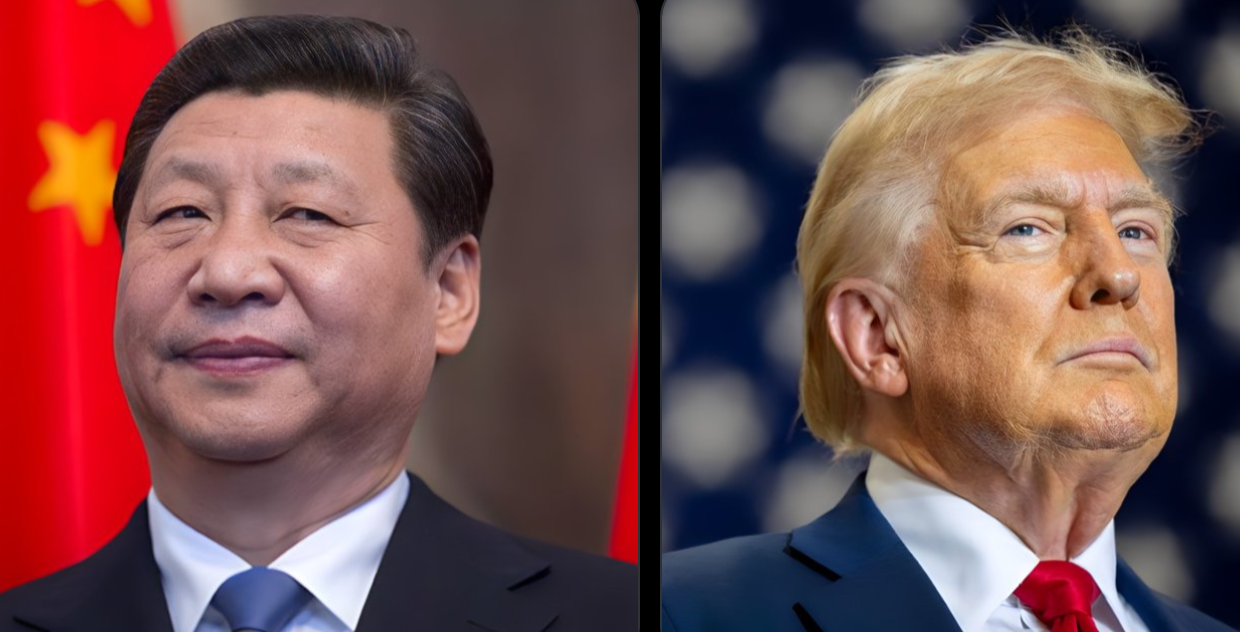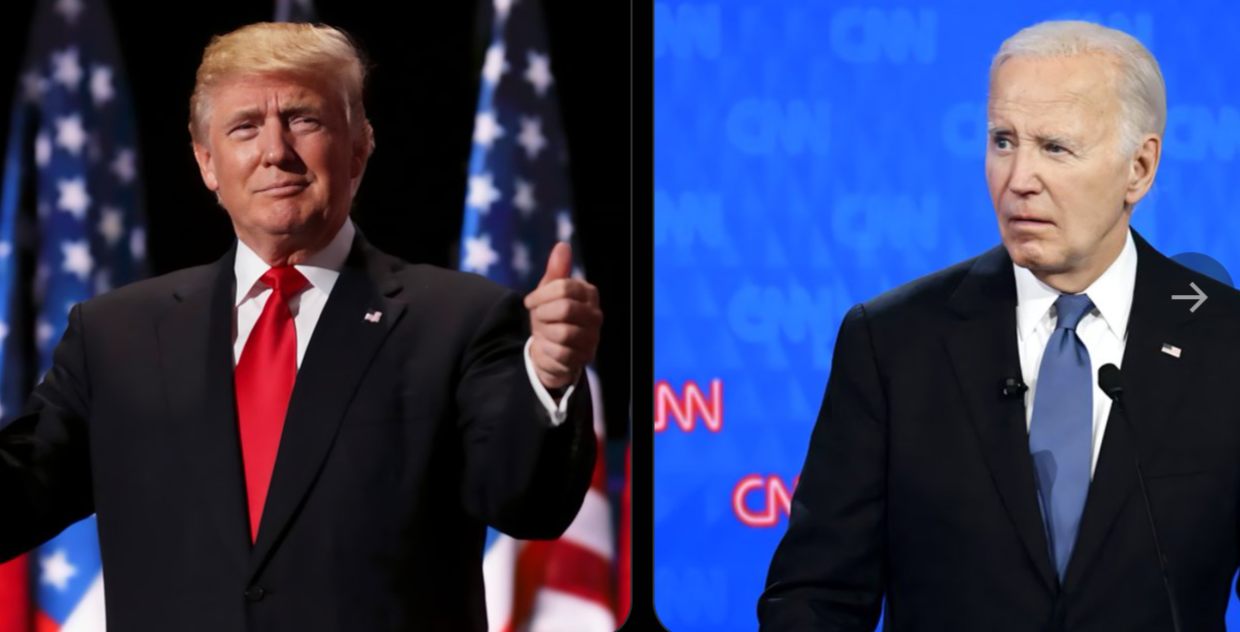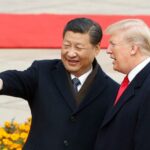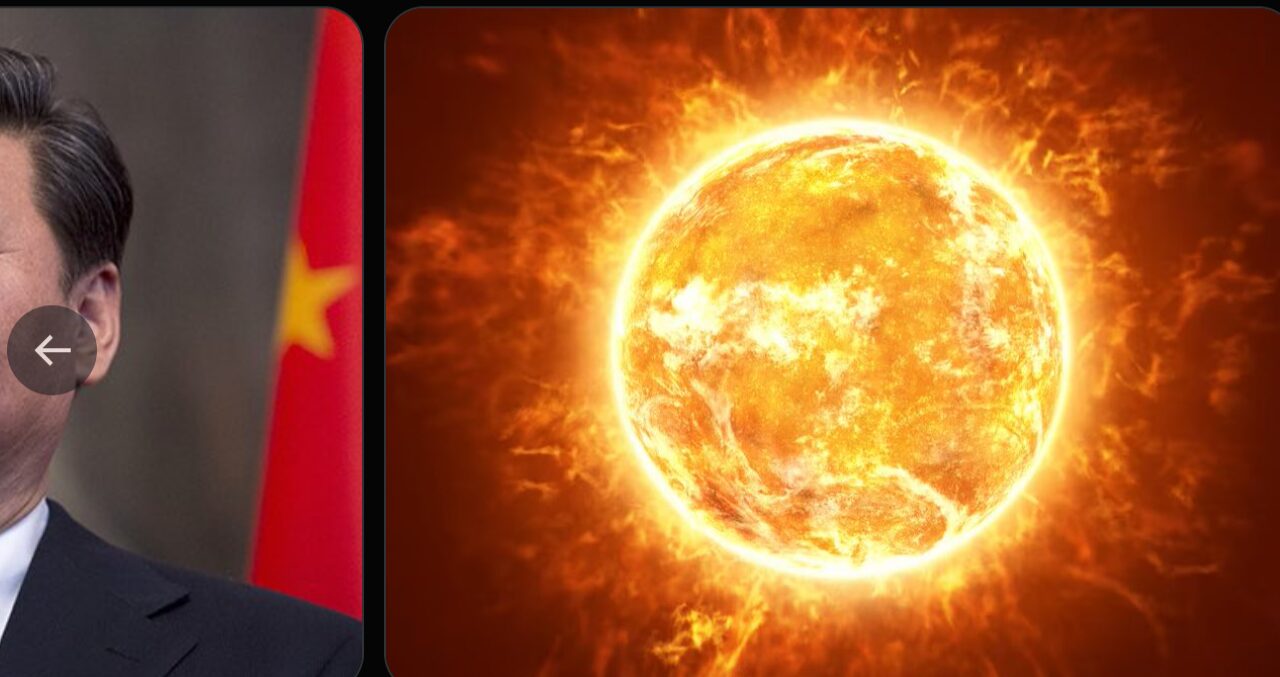TRUMP MOCKED DENMARK for its incapability of “protecting Greenland.”
In recent headlines, former U.S. President Donald Trump made waves once again by mocking Denmark’s inability to “protect Greenland.” This statement has sparked political debate and raised questions about the future of Greenland’s relationship with both Denmark and the United States. Trump, known for his unconventional approach to foreign policy, has reignited discussions surrounding Greenland’s strategic importance and the role of international alliances in global security.
The context behind Trump’s remarks
Trump’s comment about Denmark’s “incapability” to protect Greenland comes in the wake of growing global competition for resources and influence in the Arctic region. Greenland, an autonomous territory of Denmark, is rich in natural resources like oil, gas, and minerals, making it a key area of interest for major powers, including the United States, China, and Russia. The U.S. has long considered Greenland a strategic asset due to its location and its potential role in Arctic defense.
During his presidency, Trump made headlines with his controversial proposal to purchase Greenland from Denmark, a move that was ultimately rejected by Danish officials. However, his comments about Denmark’s ability to protect Greenland suggest that his interest in the region extended beyond economic gain. For Trump, it was also about security and military positioning in the Arctic, where tensions have been rising in recent years.
Greenland’s strategic importance
Greenland’s strategic significance has increased dramatically in recent years due to the melting of Arctic ice and the opening of new shipping routes. The Arctic is seen as a critical region for future global trade and military strategy, with countries vying for control over shipping lanes, natural resources, and military bases. Greenland, with its proximity to North America and Europe, plays a central role in any military calculus in the region.
The United States has maintained a military presence in Greenland for decades, most notably at Thule Air Base, which is the U.S. Air Force’s northernmost base. The base is considered vital for early-warning missile defense systems, radar installations, and surveillance of Russian and Chinese activities in the region. Trump’s focus on Greenland, therefore, wasn’t just about securing natural resources, but also about strengthening the U.S. military’s presence in the Arctic.
Denmark’s response to Trump’s comments
In response to Trump’s mocking comments, Denmark’s officials were quick to defend the nation’s sovereignty over Greenland. Danish Prime Minister Mette Frederiksen firmly rejected any notion that Denmark was incapable of protecting its territory, stating that Greenland’s security was a shared responsibility between Denmark and the autonomous Greenlandic government. Denmark has long been a member of NATO and has a well-established military presence in Greenland.
Greenland itself, while largely self-governed, has remained under Denmark’s sovereignty. However, there is growing sentiment among some Greenlandic politicians for greater autonomy or even independence. Greenland’s leaders have often expressed their desire to have more control over their own affairs, particularly in relation to natural resource management and international relations.
The political dynamics of the Arctic
Trump’s remarks about Denmark also shine a light on the shifting geopolitical dynamics in the Arctic region. As Arctic sea ice continues to melt, new shipping lanes are opening up, making the region more accessible for trade and military activity. Countries like Russia and China have ramped up their presence in the Arctic, while NATO and the U.S. are also working to ensure their influence in the region.
The U.S. has made it clear that it considers Greenland and the Arctic a key area for defense and resource exploration. In recent years, the U.S. has increased its military presence in the region, with the establishment of new bases and joint exercises with NATO allies. Trump’s comments about Denmark’s role in “protecting” Greenland can be seen as part of this broader strategy to secure Arctic dominance.
Implications for U.S.-Denmark relations
Trump’s remarks are not just about Greenland; they reflect the larger dynamics of U.S.-Denmark relations. Historically, the U.S. and Denmark have maintained a close alliance, especially through NATO. However, Trump’s blunt approach to foreign policy often strained relationships with traditional allies, and his remarks about Denmark were no exception.
While Denmark rejected Trump’s proposal to purchase Greenland, the U.S. has continued to emphasize the importance of cooperation in the Arctic. Denmark and Greenland, too, have worked with the U.S. on matters of defense, resource management, and climate change. The question now is whether Trump’s mocking comments will have any long-term impact on U.S.-Denmark relations, particularly as both countries navigate the evolving geopolitical landscape in the Arctic.
Greenland’s future and its international relationships
As Greenland continues to assert its autonomy, the future of its relationship with both Denmark and the United States remains uncertain. While Greenland has benefited from Denmark’s support, particularly in terms of defense and economic aid, there is growing momentum within the territory for a greater say in its international affairs. Greenland’s vast natural resources are an attractive asset, and many countries, including the U.S., are keen to have a say in how these resources are managed.
In addition to the U.S., other global powers, particularly China and Russia, are eyeing Greenland’s resources and strategic location. The increasing competition for influence in the Arctic could lead to a more complex geopolitical environment, where Denmark, Greenland, and the U.S. must navigate their respective interests in a region that is becoming increasingly important on the global stage.
In Conclusion
Trump’s mocking of Denmark for its inability to “protect Greenland” is more than just a moment of controversy—it highlights the increasing significance of Greenland in global geopolitics. As the Arctic becomes a focal point for military and economic competition, Greenland’s future will be shaped by the complex interplay of local autonomy, international relations, and global power dynamics. Whether Denmark’s sovereignty over Greenland will remain intact or if Greenland will pursue greater independence remains to be seen, but one thing is clear: the world is watching as the Arctic region grows in importance. Trump’s comments, while controversial, have opened the door to a larger conversation about Greenland’s role on the global stage.

















Post Comment